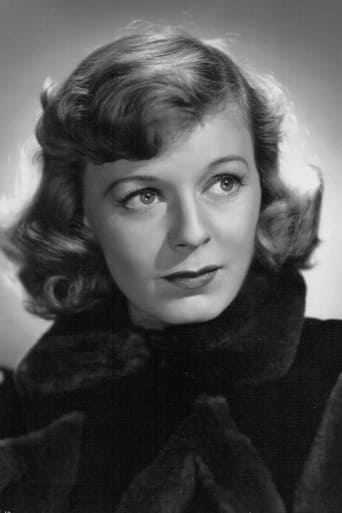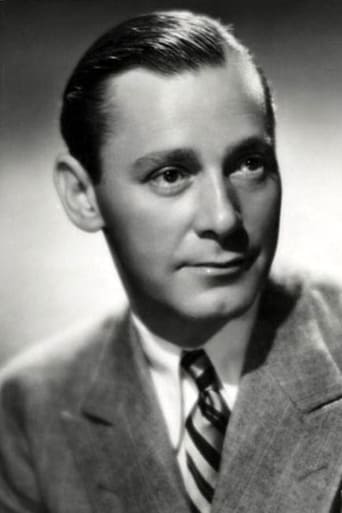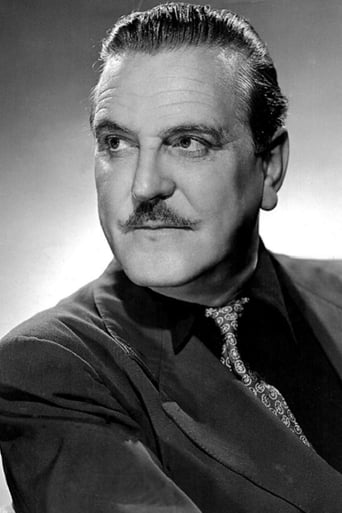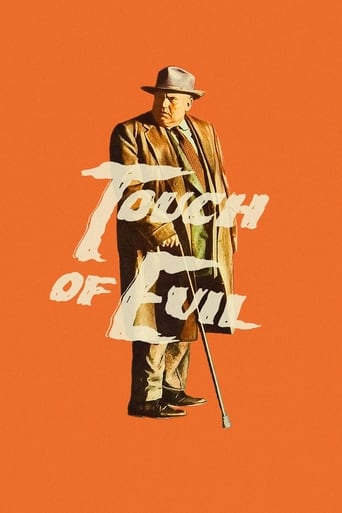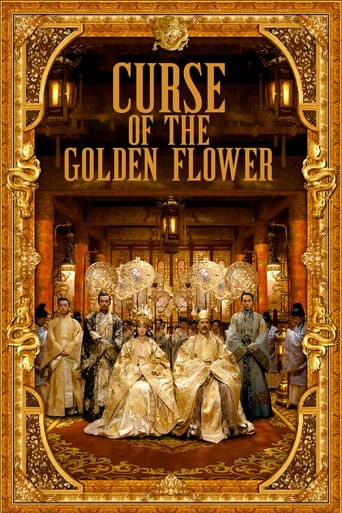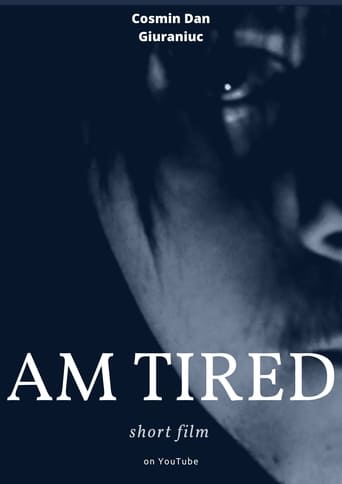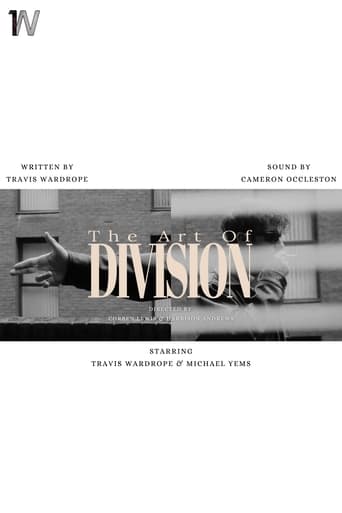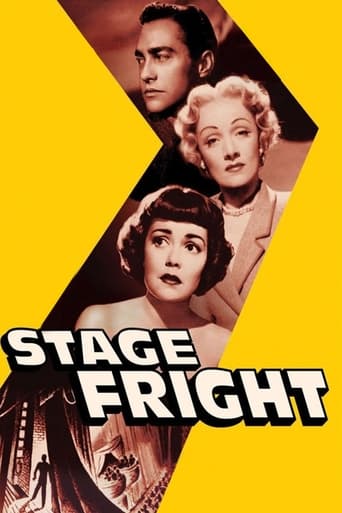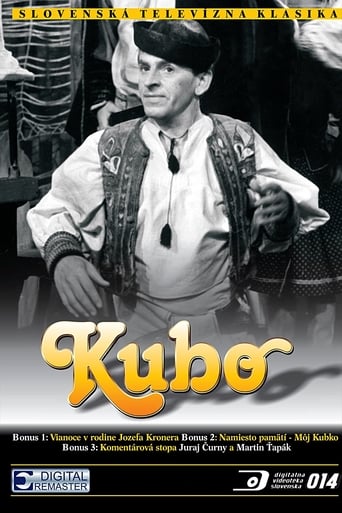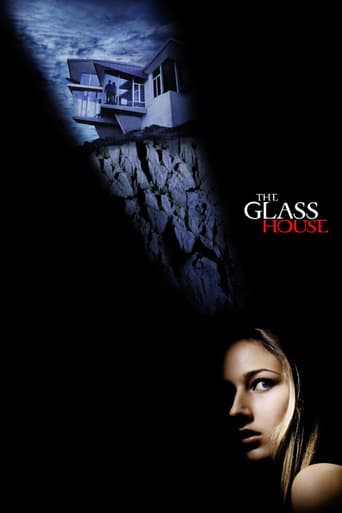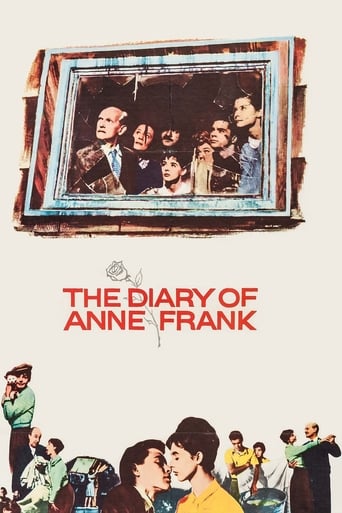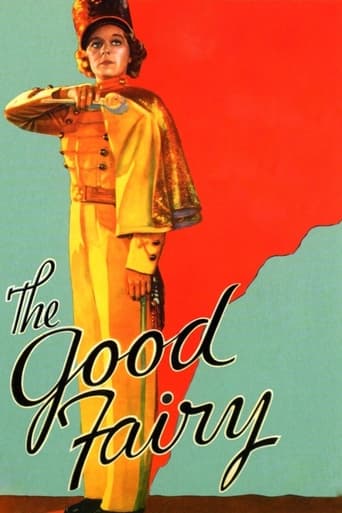
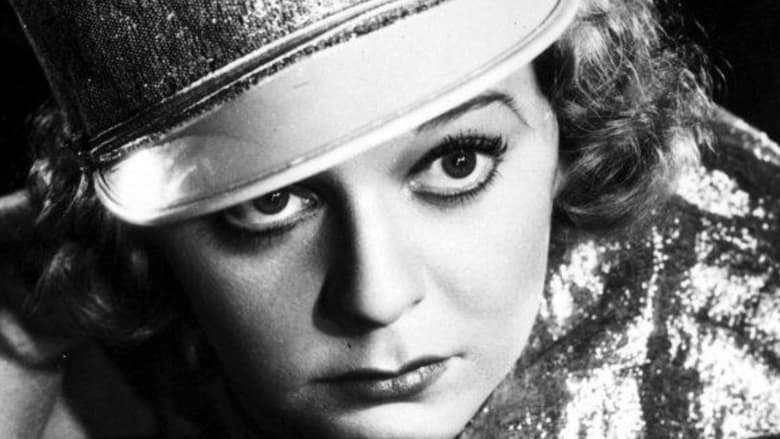
The Good Fairy (1935)
In 1930s Budapest, naïve orphan Luisa Ginglebuscher becomes an usherette at the local movie house, determined to succeed in her first job by doing good deeds for others and maintaining her purity. Luisa's well-meaning lies get her caught between a lecherous businessman, Konrad, and a decent but confused doctor, Max Sporum. When Luisa convinces Konrad that she's married to Max, Konrad tries everything he can to get rid of the baffled doctor.
Watch Trailer
Cast


Similar titles
Reviews
Sick Product of a Sick System
Good movie but grossly overrated
best movie i've ever seen.
The story-telling is good with flashbacks.The film is both funny and heartbreaking. You smile in a scene and get a soulcrushing revelation in the next.
In her short life, the ethereally radiant Margaret Sullavan (1909-1960) did not last the night, but the lovely light she briefly gave is preserved for posterity in charming mementoes such as this. Deeply touching in drama, Sullavan's best remembered comedy role was in Ernst Lubitsch's evergreen 'The Shop Around the Corner' (1940), which was the second romantic comedy she made set in Budapest. 'The Good Fairy' was the first.Scripted by Preston Sturges from a play by Ferenc Molnár produced on Broadway in 1931, 'The Good Fairy' would have been a very different film indeed but for the introduction of the strict new Production Code of June 1934 just three months before shooting commenced. Sturges had to keep one step ahead of the film throughout production as he extensively rewrote the script, which has the Hays Office's fingerprints all over it; as well as a generally disjointed feeling - such as the early disappearance of Alan Hale from the narrative, never to return; and the late appearance of Herbert Marshall, never to leave - and a LOT of talk. The droll film-within-the-film which reduces Ms Sullavan to tears which was added to the script by Sturges is among a number of hints earlier on in the film that we were going to something sharper and more sophisticated than the bowdlerised romcom that we actually get. (The same plot played as drama might have made better use of Ms Sullavan's talents and made a more interesting film).Sullavan plays Luisa Ginglebusher, a charming, accident-prone orphan who is vastly more innocent and unworldly than the sweetly manipulative little vixen played on Broadway by Helen Hayes. Rather bizarrely plucked from the orphanage to become a cinema usherette - for which Luisa is kitted out in a magnificent uniform that looks more like one of Marlene Dietrich's cast-offs from 'The Scarlet Empress' - as Miss Ginglebusher ventures out into the big wicked city, one initially fears for the safety of this seeming cross between Prince Myshkin and a more garrulous version of Chauncey Gardner. But salvation is at hand in the form of Detlaff, a brusquely kind-hearted waiter played by Reginald Owen; who looks younger than I'm used to seeing him and gives the most engaging performance I've ever seen him give (he befriends her while cautiously removing her knife when she reveals to him during dinner that she was released from an asylum that morning, but quietly returns it when it turns out that the asylum was for orphans); and takes it upon himself to protect her from the wolves that prowl the city (an extremely wolfish-looking Cesar Romero puts in a brief appearance as one such).The film, unfortunately, soon tires of giving us a heroine who's just a simple working girl (we never actually see where she lives, for example), and is irrevocably derailed by the introduction of Frank Morgan as Konrad - one of those vague, benevolent millionaires encountered so often in Hollywood movies - who agrees to become Sullavan's sugar daddy without ever suggesting he might eventually be expecting some sugar in return. Ironically, considering he is today principally remembered for later playing the title role in 'The Wizard of Oz', Morgan actually describes himself at one point as "a wizard" and offers to demonstrate his magic powers to Luisa by pulling out his cheque book to enhance the life of the non-existent husband she has just made up to ward of his advances. I agree with 'kyrat', who said in an earlier IMDb review nearly fifteen years ago that it would have been more satisfying to have bestowed Konrad's windfall upon her own good fairy Detlaff rather than just pick a name out of the 'phone book; and the romance that develops between Luisa and the thus gifted Dr. Sporum (Herbert Marshall in a goatee and wing collar) - whose greatest excitement at his sudden good fortune is that he can now afford a proper office pencil-sharpener - seems dictated by Hollywood convention rather than any actual chemistry between them. (Surprise! Surprise! the film ends in a wedding; and I would have liked to have had a better look at the very striking wet-look art deco bridal gown we fleetingly see Ms Sullavan walk down the aisle in just before the end credits).As the film progresses Luisa frankly comes across as a bit of a simpleton rather than just a pure simple soul; and the 25 year-old Sullavan is playing a girl nearly ten years younger than her real age surrounded by middle-aged men whose motives all remain impeccably but rather improbably pure (there's some supposedly innocent but I thought slightly creepy horseplay in Konrad's hotel room with him pretending that he's a mountain lion and Luisa's a lamb). But this is all A-list Hollywood hokum done to a turn by rising young director William Wyler (who ran off with Sullavan to get married in the middle of production) and all very pleasant if you don't take it too seriously; which I'm sure nobody involved in the production did.
This gem of a screwball comedy has it all: wonderful performances (especially from Margaret Sullavan), witty dialogue, good comedic timing, etc. The premise is a little outlandish, but hey, what do you expect from a screwball? Besides, that's partly what made "A Palm Beach Story" (also written by Sturges) so charming.Margaret Sullavan plays Louisa, an orphan hired as a movie theater usher (which, in the scheme of things, is not important). Through funny circumstances she ends up befriending Detlaff, a prickly but lovable waiter. He invites her to a fancy party where millionaire Konrad falls for her and tries to seduce her (and fails miserably). Frightened, Louisa lies and says she's married and picks her husband's name out of the phone book. Konrad decides to give this lawyer (Max Sporum/Herbert Marshall) an important position with his company so that _he_ can go on to lavish Lousia with expensive gifts.You can figure out the rest. Herbert Marshall and Sullavan have a great chemistry, though, and though I never took to Marshall in "Trouble in Paradise", I found him utterly charming here with his accent, enthusiasm, and dry humor. As for Sullavan...wow! She produced such touching scenes that I would have labeled this movie a tearjerker if it weren't so darned funny! A must-see.
Circumstances afford a young woman an opportunity to enrich the life of a poor person that she picks randomly out of a telephone book. Sturges delightfully adapts a Hungarian play, incorporating the kind of snappy dialog that would mark his later directorial efforts. In one of three great films he directed in the mid 1930s (Counsellor at Law, Dodsworth), Wyler displays a touch comparable to Lubitsch. Sullavan, an actress whose career and life were both sadly short, is charming as a good-hearted orphan. Marshall is perfectly cast as a dignified lawyer. Laughs are provided by Owen as a waiter who wants to protect Sullavan and by Morgan as a tycoon who wants to be Sullavan's Sugar Daddy.
Here's a film that did succeed as a charming comedy when it first opened at Radio City Music Hall back in 1935, based on a play by Molnar that had been a very successful stage comedy. And given the fact that MGM produced it with a handsome cast and gave it a director like William Wyler, it ought to be something to shout about.Not so. MARGARET SULLAVAN, first of all, is an acquired taste. She's not a conventional Hollywood face by any means--in fact, she's really a drab little wren--but with MGM's make-up department and some softly appealing close-ups, she makes a presentable leading lady. It's her voice and mannerisms that you have to get used to--much the way Katharine Hepburn took the country by storm and then was declared "box-office poison" when she became too mannered.The story is a trifle with a naive girl re-arranging the lives of three men she tries to help--but caught up in a web of deception. The well meaning girl has a waiter, a lawyer and a rich magnate all in a stew once she starts her fibs. This was re-made in the '40s as a Deanna Durbin film with music, of course, and maybe that's what helped I'LL BE YOURS become a more sprightly version of the tale.This is strictly for fans of Margaret Sullavan as the story and situations are a bit too contrived for comfort. HERBERT MARSHALL as the lawyer, REGINALD OWEN as the waiter and FRANK MORGAN as the millionaire all do well enough but no one can overcome the fanciful script that is more foolish than funny.


